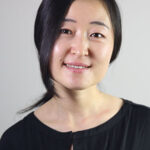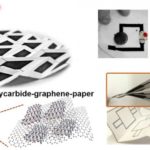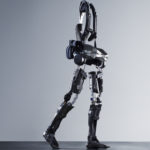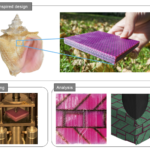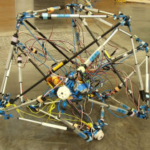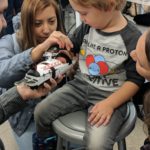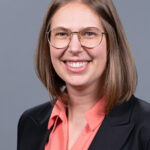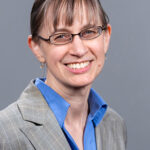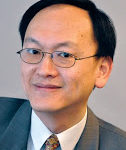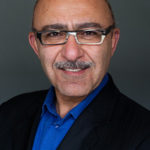Assistant Professor of Mechanical Engineering
5128 Etcheverry HallUniversity of California, Berkeley
Berkeley, CA 94720-1740
liningy@berkeley.edu
For more information see:
Dr. Lining Yao will be joining the Department of Mechanical Engineering at the University of California, Berkeley in January of 2024. She is currently a Cooper-Siegel Associate Professor of Human-Computer Interaction at Carnegie Mellon University (CMU), School of Computer Science, directing the Morphing Matter Lab. Dr. Yao also has courtesy appointments in Mechanical Engineering and Materials Science and Engineering at CMU and serves as a core team member of the Softbotics initiative and on the University Advisory Board of the Future Manufacturing Institute. Dr. Yao received her Ph.D. from the MIT Media Lab in 2017. She is the co-founder of the MorphingMatter4Girls Initiative, a Wired UK fellow, an appointed instructor in eco-design by the United Nations Industrial Development Organization, a CMU Provost’s Inclusive Teaching Fellow, and a recipient of the NSF CAREER Award.
Research Description:
Dr. Lining Yao’s research explores the positive impact of active and morphing materials on sustainable design across different scales and contexts. Her work focuses on discovering and studying morphing material mechanisms, as well as algorithms for computational design and fabrication pipelines. Dr. Yao has published in both computer science and physical science venues and has received nine Best Paper or Best Talk Awards and nominations from premier conferences in Human-Computer Interaction. Her journal papers have been featured as cover stories in Nature, Science Advances, and Advanced Materials Technologies.
Key Publications:
Luo, D., Maheshwari, A., Danielescu, A., Li, J., Yang, Y., Tao, Y., Sun, L., Patel, D. K., Wang, G., Yang, S., Zhang, T., and Yao, L., 2023, “Autonomous Self-Burying Seed Carriers for Aerial Seeding,” Nature, 614(7948), pp. 463–470. https://www.nature.com/articles/s41586-022-05656-3
Tao, Y., Lee, Y.-C., Liu, H., Zhang, X., Cui, J., Mondoa, C., Babaei, M., Santillan, J., Wang, G., Luo, D., Liu, D., Yang, H., Do, Y., Sun, L., Wang, W., Zhang, T., and Yao, L., 2021, “Morphing Pasta and Beyond,” Sci. Adv., 7(19), p. eabf4098. https://advances.sciencemag.org/content/7/19/eabf4098
Patel, D. K., Huang, X., Luo, Y., Mungekar, M., Jawed, M. K., Yao, L., and Majidi, C., 2022, “Highly Dynamic Bistable Soft Actuator for Reconfigurable Multimodal Soft Robots,” Adv Materials Technologies, p. 2201259. https://onlinelibrary.wiley.com/doi/10.1002/admt.202201259
Yang, H., Qian, K., Liu, H., Yu, Y., Gu, J., McGehee, M., Zhang, Y. J., and Yao, L., 2020, “Simulearn: Fast and Accurate Simulator to Support Morphing Materials Design and Workflows,” Proceedings of the 33rd Annual ACM Symposium on User Interface Software and Technology, Association for Computing Machinery, New York, NY, USA, pp. 71–84. https://dl.acm.org/doi/10.1145/3379337.3415867
An, B., Wu, H.-Y., Zhang, T., Yao, L., Tao, Y., Gu, J., Cheng, T., Chen, X. “Anthony,” Zhang, X., Zhao, W., Do, Y., and Takahashi, S., 2018, “Thermorph: Democratizing 4D Printing of Self-Folding Materials and Interfaces,” Proceedings of the 2018 CHI Conference on Human Factors in Computing Systems – CHI ’18, ACM Press, Montreal QC, Canada, pp. 1–12. https://dl.acm.org/doi/10.1145/3173574.3173834
Wang, W., Yao, L., Cheng, C.-Y., Zhang, T., Atsumi, H., Wang, L., Wang, G., Anilionyte, O., Steiner, H., Ou, J., Zhou, K., Wawrousek, C., Petrecca, K., Belcher, A. M., Karnik, R., Zhao, X., Wang, D. I. C., and Ishii, H., 2017, “Harnessing the Hygroscopic and Biofluorescent Behaviors of Genetically Tractable Microbial Cells to Design Biohybrid Wearables,” Sci. Adv., 3(5), p. e1601984. https://www.science.org/doi/10.1126/sciadv.1601984


